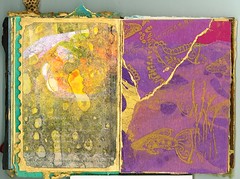Thursday (8/2) and Friday (8/3) I was sitting in the background at an Nvivo 10 training, absorbing information about what is changing with the package.
Saturday (8/4), I had the opportunity to meet with staff and official trainers to participate in a day-long discussion of issues related to using NVivo software, new horizons in software of this sort, and confirmation of qualitative research geeky techiness. AWESOME!!. Thank you QSR for making this opportunity possible.
 |
| Cindi Jacobs, QSR Training Manager for the Americas--a fantastic hostess--setting a great pace for the entire daty. |
 | |
| Joe Fisher, UMass-Lowell Digital Librarian, talking with | Raewyn Bassett and Laura Langendyk, two NVivo trainers from Canada |
Raewyn presented a very interesting paper: NVivo as Conceptual Space for Analysis. She has been interviewing NVivo users and examining how they talk about their practice as well as thinking about the visual and auditory ways we use NVivo and how we are working with the tool and our notions of qualitative research practice. I found it very, very interesting.
 |
| Rob Calcagni QSR, General Manager, Americas with Jennifer Patashnick, Carol Rheaume, and Asher Beckwitt |
Asher ran a great round table on issues related to coding and interpretation. I came away with lots of food for thought.
 |
| Left to Right is Stuart Robertson (QSR staff person) with Guenther Krueger (a trainer from Vancouver BC) and Kristi Jackson (trainer and owner of QUERI) |
 |
| Here is Kristi Jackson with attitude talking about a on conducting team based chapter from her upcoming book on NVivo with Pat Bazeley |
Thank you QSR. It was a great day(s). I hope we can have more of these in the future.









